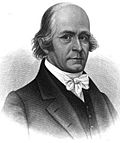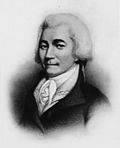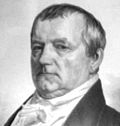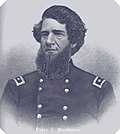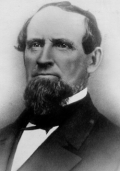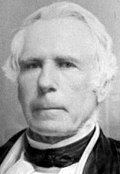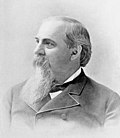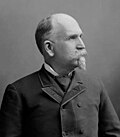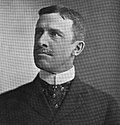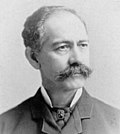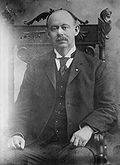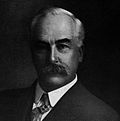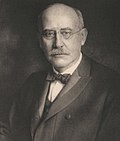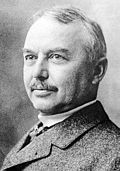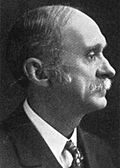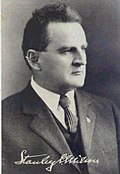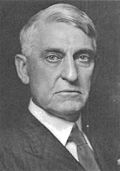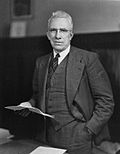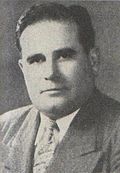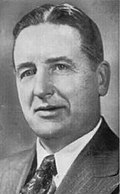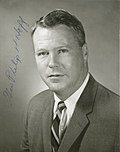List of governors of Vermont
From Wikipedia, the free encyclopedia
The governor of Vermont is the head of government of the U.S. state of Vermont. Since 1994, Vermont is one of only two U.S. states (New Hampshire being the other) that elects governors for two-year terms.[1] Until 1870, Vermont elected its governors for one-year terms.[2] Isaac Tichenor, Jonas Galusha, Erastus Fairbanks, and Richard A. Snelling each served non-consecutive terms, while Thomas Chittenden served non-consecutive terms as Governor of the Vermont Republic.[3]
Mountain Rule
Summarize
Perspective
From the founding of the Republican Party in the 1850s until the 1960s, only Republicans won general elections for Vermont's statewide offices. One method that made this possible was the Republican Party's imposition of the "Mountain Rule," an informal mechanism which restricted the pool of candidates.[4]
Under the original provisions of the Mountain Rule, one U.S. senator was a resident of the east side of the Green Mountains and one resided on the west side. The expanded version of the rule called for the governorship and lieutenant governorship to alternate between residents of the east and west side. Nominees for governor and lieutenant governor were originally allowed two one-year terms, and later one two-year term. For nearly 100 years, likely Republican candidates for office in Vermont agreed to abide by the expanded Mountain Rule in the interests of party unity. Several factors led to the eventual weakening of the Mountain Rule, including the long political dispute between the Proctor (conservative) and Aiken–Gibson (progressive) wings of the party; primaries rather than conventions to select nominees; the direct election of U.S. Senators; and several active third parties, including the Progressives, the Prohibition Party, and the Local Option movement. In the 1960s, the rise of the Vermont Democratic Party and the construction of Interstate 89 also contributed to the end of the Mountain Rule. Although I-89 is a north–south route, it traverses Vermont from southeast to northwest for the majority of its length within the state and changed the way residents view how it is divided.[5][6]
List of governors
Summarize
Perspective
Vermont Republic
The Vermont Republic declared independence from Great Britain on January 15, 1777.
| No. | Governor | Term in office | Party | Election | Lt. Governor | |
|---|---|---|---|---|---|---|
| 1 |  |
Thomas Chittenden (1730–1797) [7][8] |
March 13, 1778[9] – October 13, 1789 (lost election)[10] |
No party | 1778 | Joseph Marsh |
| 1779 | Benjamin Carpenter | |||||
| 1780 | ||||||
| 1781 | Elisha Payne | |||||
| 1782 | Paul Spooner | |||||
| 1783 | ||||||
| 1784 | ||||||
| 1785 | ||||||
| 1786 | Joseph Marsh | |||||
| 1787 | ||||||
| 1788 | ||||||
| 2 |  |
Moses Robinson (1741–1813) [11] |
October 13, 1789[12] – October 20, 1790 (lost election)[10] |
No party | 1789 | |
| 3 |  |
Thomas Chittenden (1730–1797) [7][8] |
October 20, 1790[13] – March 4, 1791 (became state governor)[14] |
No party | 1790 | Peter Olcott |
State of Vermont
Vermont was admitted to the Union on March 4, 1791.
See also
Notes
- Represented the Democratic-Republican Party
- In the 1835 election, Palmer received a plurality, but not the required majority; the legislature remained deadlocked after 63 votes and the joint assembly dissolved on November 2[53] without choosing a governor, so Lieutenant Governor Jennison acted as governor for the term.[47]
- Jennison represented both the Anti-Masonic and the Whig parties in 1835.[52]
- Republican convention delegates decided that since Washburn, from the East side of the Green Mountains, had won the nomination in 1869, the 1870 nomination should go to a candidate from the West. They also decided that though he was from the West, nominating Hendee would violate the Mountain Rule's two years in office provision, because 1870 would be the first election for a two-year term. As a result, Hendee was not a candidate.
- Vermont's gubernatorial terms were changed from one year to two. Stewart argued that the Mountain Rule's two-term limit on governors should allow him to serve two two-year terms. Republican convention delegates decided that the Mountain Rule limited governors to two years in office, so Stewart was not re-nominated.
- Weeks successfully argued that he should serve a second term in order to oversee recovery from the Great Flood of 1927. In 1930, he was elected to the United States House of Representatives.[194]
- Aiken was instead elected to the United States Senate.[204]
- Gibson resigned, having been confirmed to the United States District Court for the District of Vermont.[214]
- Stafford was instead elected to the United States House of Representatives.[226]
- Represented the Republican Party
- Represented the Democratic Party
- Scott's fifth term began January 9, 2025,[255] and will expire in January 2027.
- Represented the Progressive Party
References
External links
Wikiwand - on
Seamless Wikipedia browsing. On steroids.

